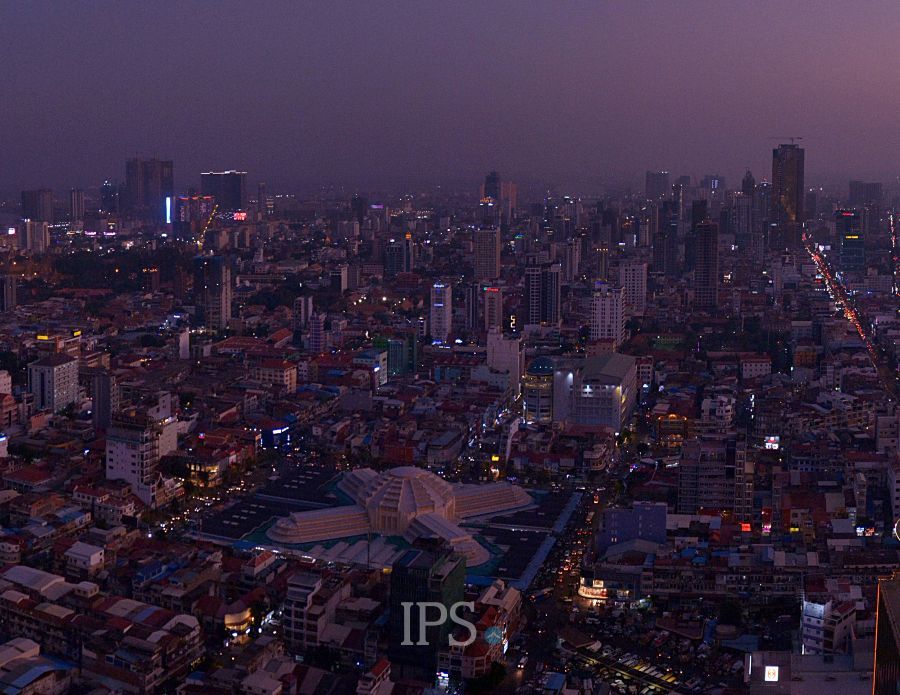Cambodia, a country with a rich tapestry of history, culture, and economic growth, invites a closer look from investors and enthusiasts worldwide. Situated in the heart of Southeast Asia, the Kingdom of Cambodia is much more than its ancient ruins and lush landscapes; it’s a burgeoning hub with promising opportunities for business and investment.
QUICK FACTS
| Official Name: | Kingdom of Cambodia (Preah Reachea Nachakr Kampuchea) |
| Capital City: | Phnom Penh |
| Region: | Southeast Asia |
| Surface area: | 181,040 km² |
| Population: | (2024 est.) 16,719,000 |
| Official Language: | Khmer |
| Official Religion: | Buddhism |
| Form of Government: | Parliamentary Constitutional Monarchy |
| Head Of State: | King: Norodom Sihamoni |
| Head Of Government: | Prime Minister: Hun Manet |
| Currency: | Cambodian Riel (KHR) |
| Major Industries: | Tourism, garments, construction, agriculture, real estate |
| GDP: | 29.50 bn $ |
Cultural Heritage and History
Cambodia’s history spans centuries and the people are deeply connected to their cultural heritage. The Khmer Empire’s well-preserved architectural marvels and awe-inspiring temples, including the iconic Angkor Wat, are ever-present reminders of the country’s traditions and history. Cambodia’s ancient sites, religious practices and traditional arts reflect its deep-rooted cultural connection and provide a fascinating journey through time for visitors and residents.

Boat Race, Water Festival in Cambodia
Cultural Significance
The Khmer people are known for their warm hospitality and they preserve their traditions through vibrant festivals, traditional dances and religious ceremonies. Cambodia’s cultural fabric lives alongside its Buddhist beliefs and practices, which play a significant role in the daily lives of its people. The annual Water Festival and the colourful Khmer New Year celebrations showcase the country’s cultural vibrancy and are opportunities for deep appreciation of its traditions and customs.

Angkor Wat, Siem Reap, Cambodia
Natural Beauty
Beyond its cultural riches, Cambodia’s natural beauty and breathtaking landscapes attract many visitors. The country offers diverse natural attractions, such as the pristine beaches of Koh Rong and Kep, the lush greenery of the Cardamom Mountains, and the serene beauty of Tonlé Sap Lake. Cambodia’s national parks, Bokor and Kirirom, provide opportunities for eco-adventures, wildlife spotting and nature exploration.

Water Falls in Phnom Kulen
Investment Opportunities
Cambodia remains an under-rated opportunity for investment. The country’s progressive economic growth, government initiatives to attract foreign investment, and strategic location within Southeast Asia create an appealing environment for investors. With a young and dynamic workforce, growing middle class and improving infrastructure, Cambodia presents opportunities in sectors, such as real estate, hospitality, manufacturing, agriculture and renewable energy. The country’s untapped potential and evolving business landscape offer a promising frontier for astute investors seeking new horizons.

Phnom Penh City
Cambodia’s captivating blend of tradition, cultural significance, natural beauty, culinary diversity and underestimated investment potential make it a captivating destination. Whether exploring the ancient temples of Angkor, immersing in the country’s cultural heritage, savouring the flavours of Khmer cuisine or tapping into its progressive economic growth, Cambodia offers a wealth of opportunities for both visitors and investors.
As the country continues to evolve and embrace its potential, Cambodia invites those with a keen eye for investment to uncover the hidden gems and be part of its transformative journey.
Monarchy and Government in Cambodia
Cambodia follows a constitutional monarchy with a parliamentary form of government. The king is the head of state, but the prime minister is the head of government. The current king is Norodom Sihamoni, who was elected in 2004.
Prior to August 22, 2023, the Prime Minister was Hun Sen, who had been in power since 1985. However, following the elections held on July 23, 2023, which Hun Sen won, he decided to pass on the mantle of leadership to his son, Hun Manet. As of August 22, 2023, Hun Manet is now serving as the Prime Minister of Cambodia, continuing his father’s legacy.

PM Hun Sen with son PM Hun Manet (Photo by Khmer Times)
Some key features of Cambodia’s constitutional monarchy and parliamentary democracy system are:
- The king serves as the symbolic head of state, while the prime minister holds real political power as the head of government.
- The country’s constitution supports a multi-party system, promoting political diversity.
- The king’s role is predominantly ceremonial; the prime minister is accountable to the National Assembly.
- The National Assembly, elected through universal consensus, possesses the authority to enact laws and oversee the government’s actions.
- Cambodia is a member of international organisations such as the Association of Southeast Asian Nations (ASEAN), the United Nations and the World Trade Organization.
• Introduction to Cambodia
» Introduction to Phnom Penh
» Introduction to Siem Reap
» Monarchy & Government
• Tourism & Residency
» Thriving Tourism Industry
» Visas in Cambodia
• Healthcare & Education
» Healthcare in Cambodia
» Education in Cambodia
» International Schools in Cambodia
• Technology
» The Rise of Technology in Cambodia
• Why invest in property in Cambodia?
• Why Invest in Condominiums?
» Condo Ownership Journey in Cambodia
• Why Phnom Penh is SEA’s New Real Estate Hotspot
• Cambodian Property Tax Guide
» Navigating Rental Property Taxes in Cambodia
• Can Foreigners Own Land in Cambodia?
• Understanding Cambodian Property Titles
» Strata Title: Background, Benefits, Legal Value
• Understanding Perpetual Leases in Cambodia
• The IPS Cambodia Advantage
» Why Choose IPS?


